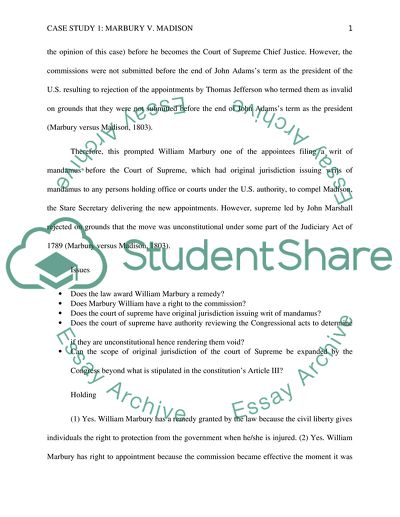Cite this document
(“The Case Marbury V. Madison Essay Example | Topics and Well Written Essays - 2250 words”, n.d.)
The Case Marbury V. Madison Essay Example | Topics and Well Written Essays - 2250 words. Retrieved from https://studentshare.org/law/1661330-case-study-1-marbury-v-madison-5-us-137-1-cranch-137-2-l-ed-60-1803
The Case Marbury V. Madison Essay Example | Topics and Well Written Essays - 2250 words. Retrieved from https://studentshare.org/law/1661330-case-study-1-marbury-v-madison-5-us-137-1-cranch-137-2-l-ed-60-1803
(The Case Marbury V. Madison Essay Example | Topics and Well Written Essays - 2250 Words)
The Case Marbury V. Madison Essay Example | Topics and Well Written Essays - 2250 Words. https://studentshare.org/law/1661330-case-study-1-marbury-v-madison-5-us-137-1-cranch-137-2-l-ed-60-1803.
The Case Marbury V. Madison Essay Example | Topics and Well Written Essays - 2250 Words. https://studentshare.org/law/1661330-case-study-1-marbury-v-madison-5-us-137-1-cranch-137-2-l-ed-60-1803.
“The Case Marbury V. Madison Essay Example | Topics and Well Written Essays - 2250 Words”, n.d. https://studentshare.org/law/1661330-case-study-1-marbury-v-madison-5-us-137-1-cranch-137-2-l-ed-60-1803.


